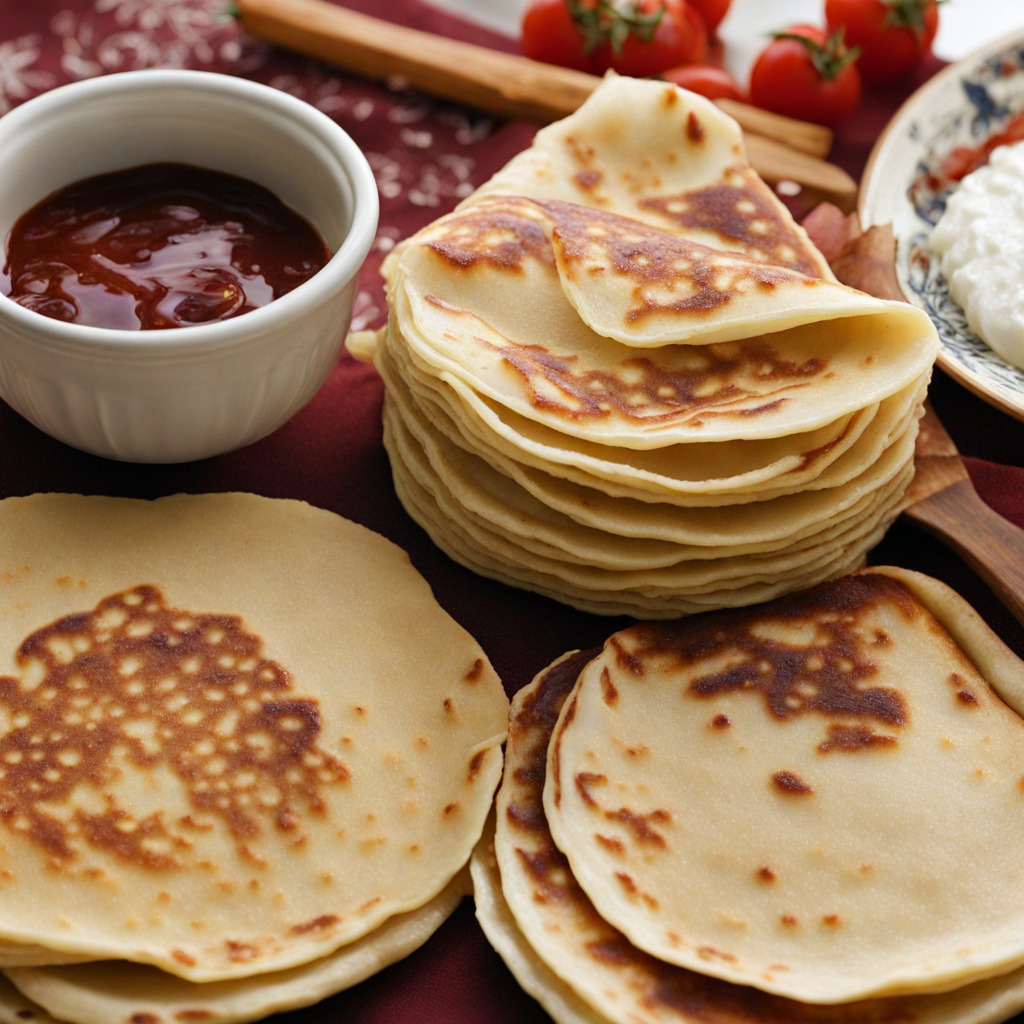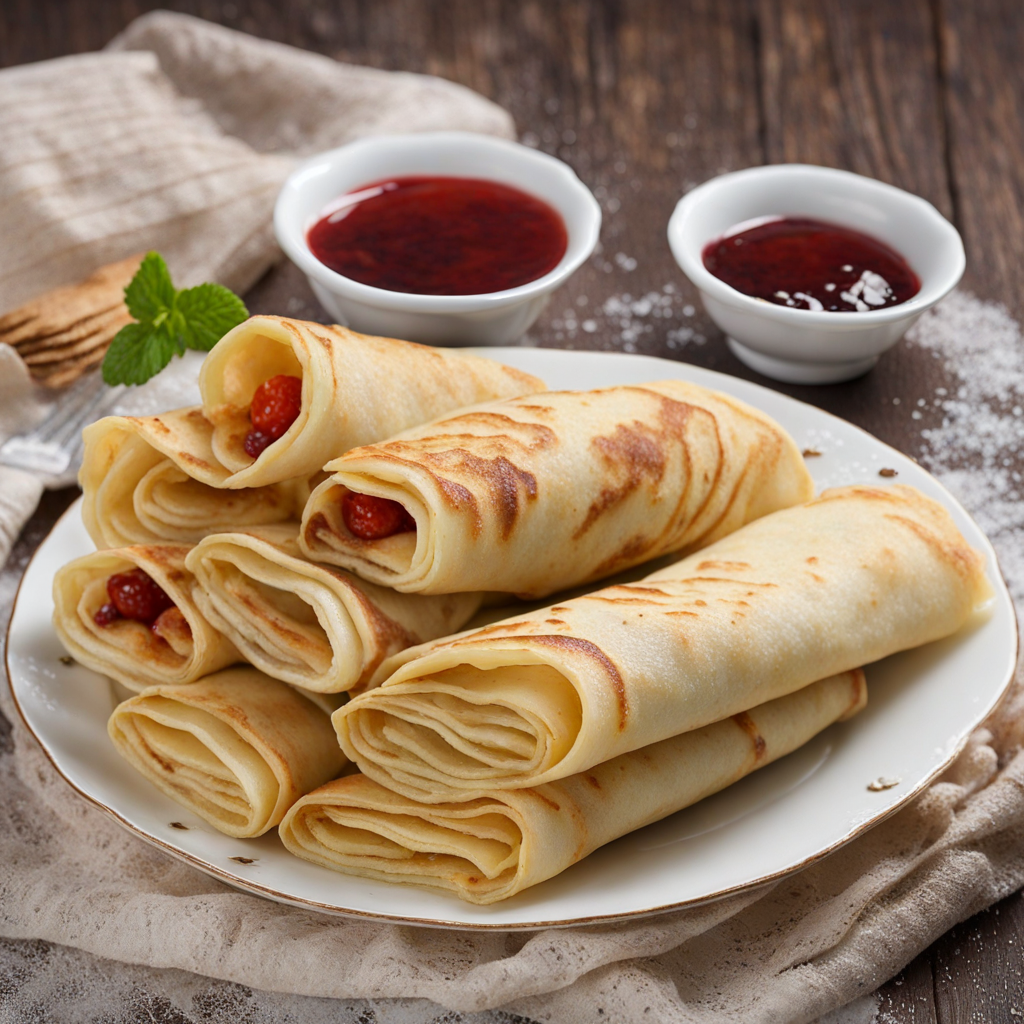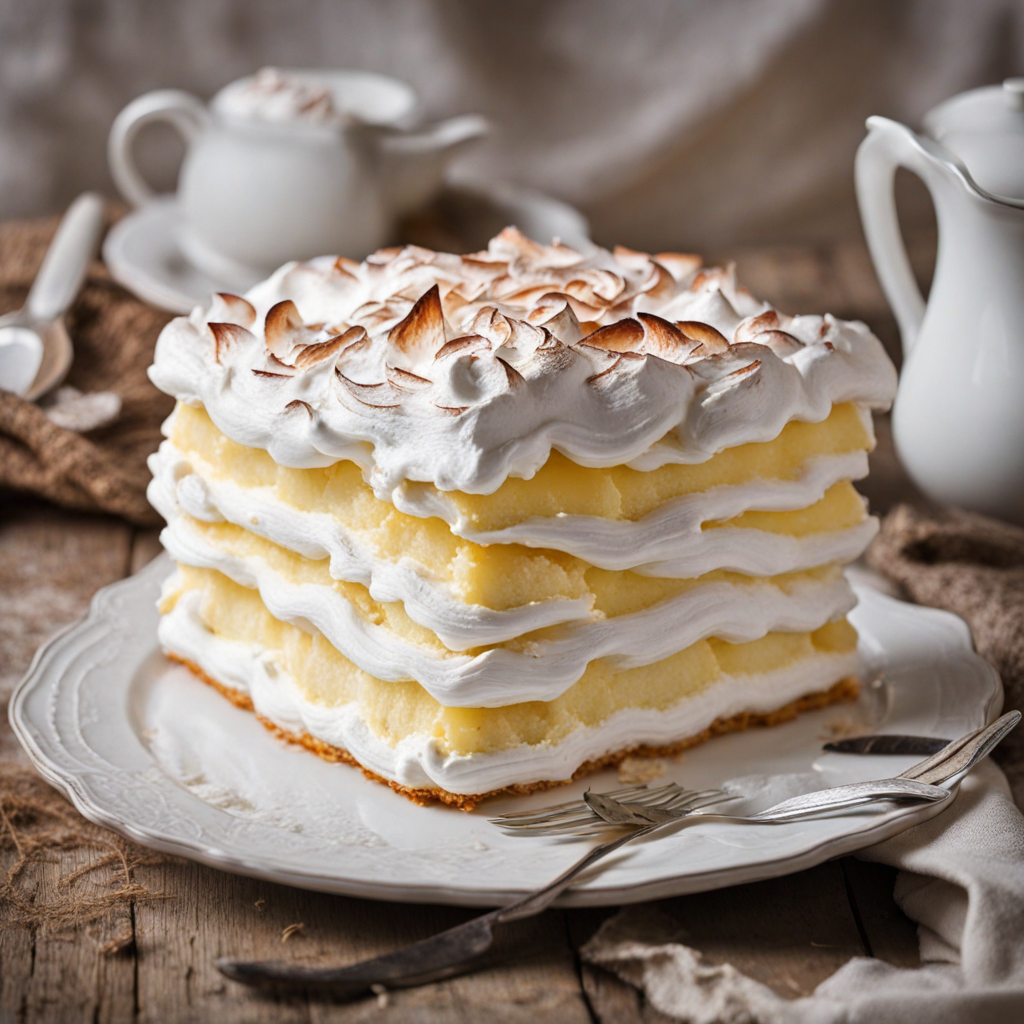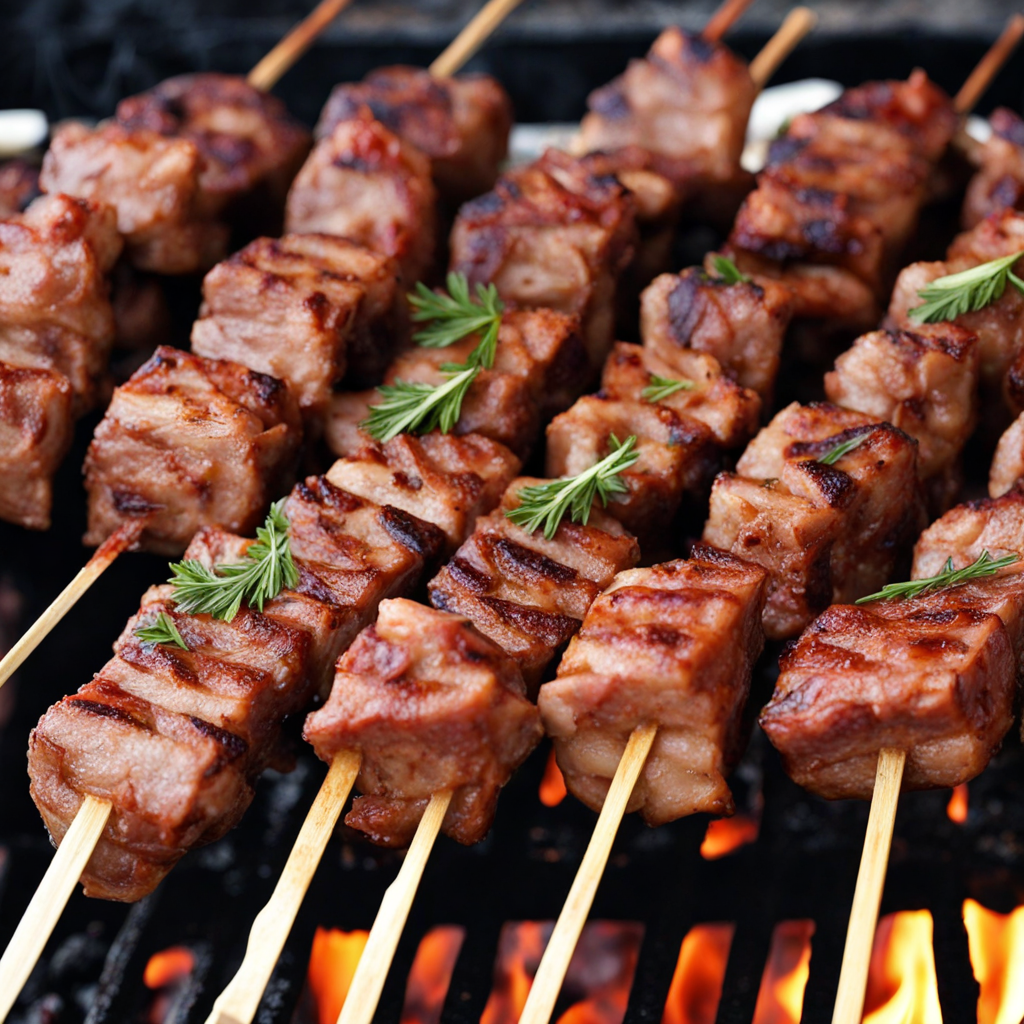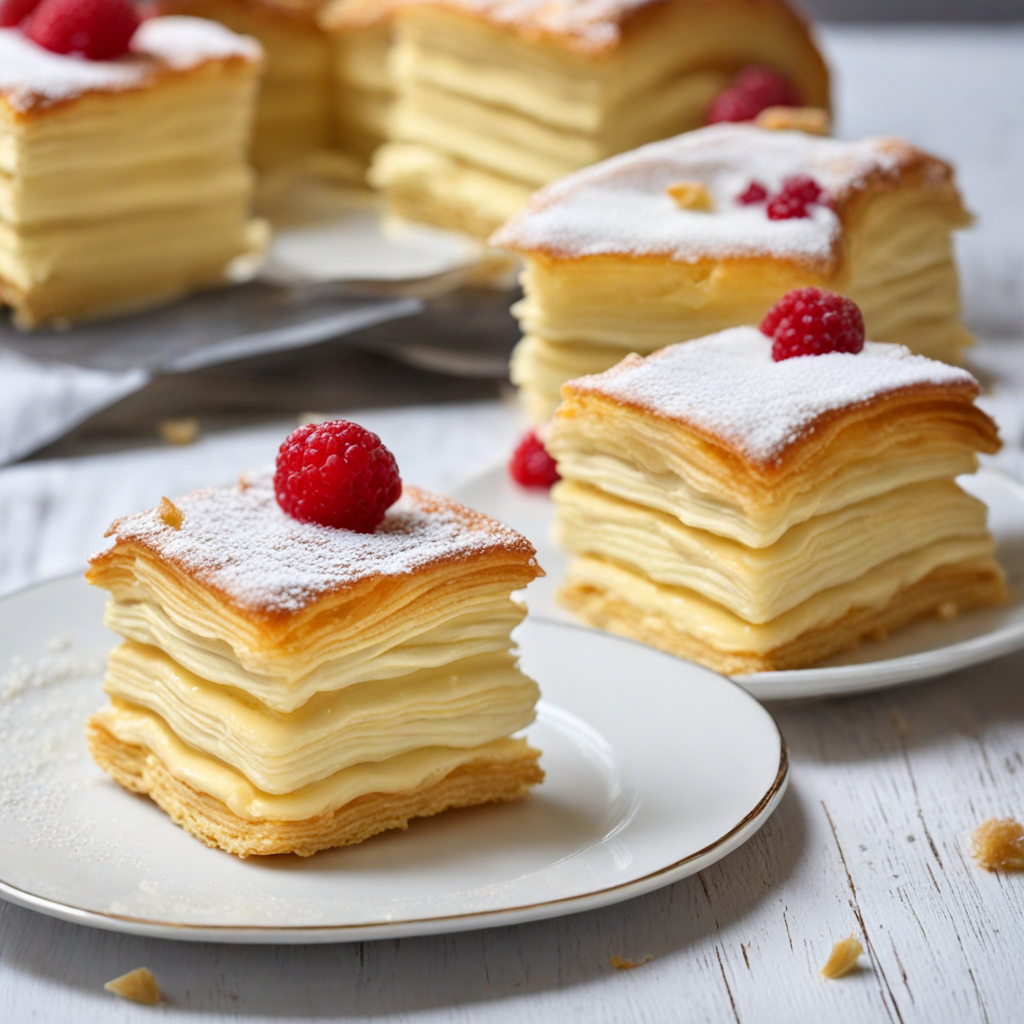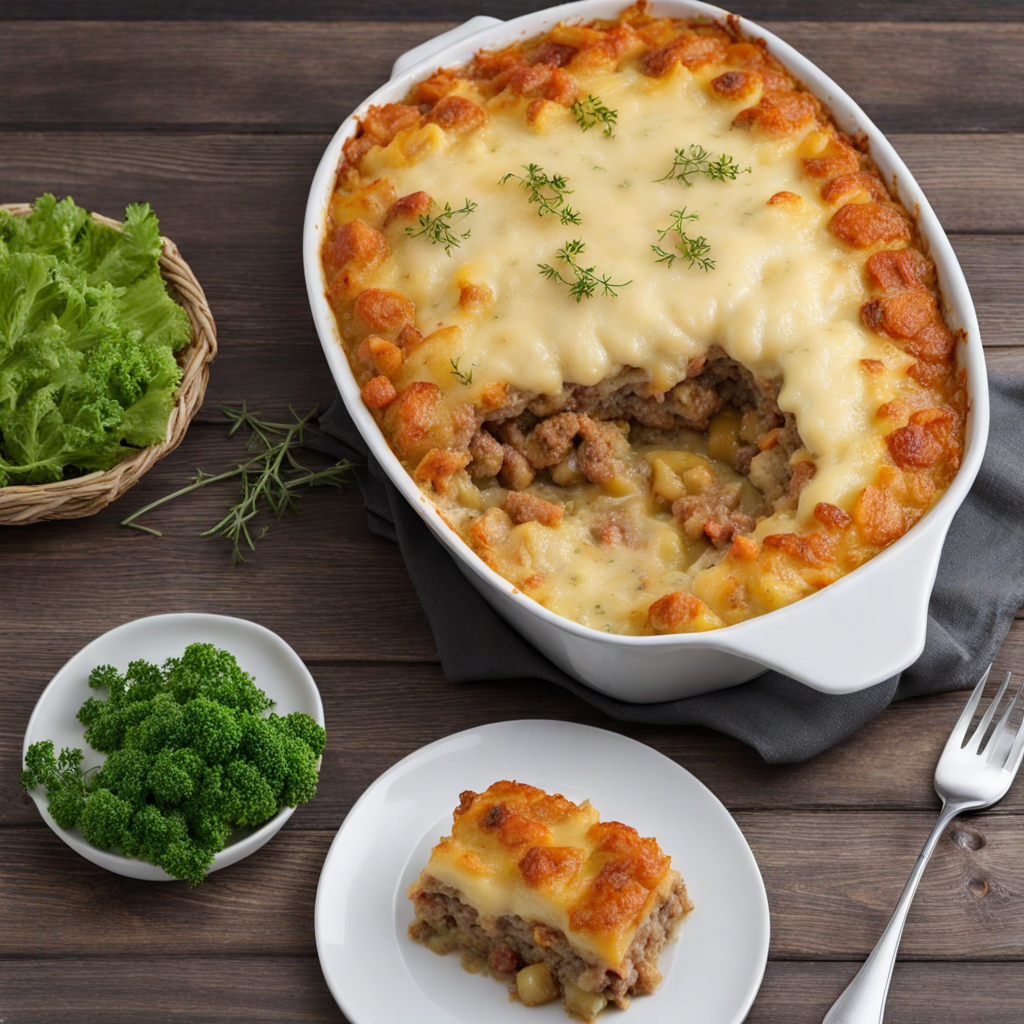Palačinke
Palačinke are a delightful traditional dish from Bosnia and Herzegovina, reminiscent of crepes but with their own unique charm. These thin pancakes are made from a simple batter of flour, eggs, milk, and a pinch of salt, creating a soft and pliable texture that lends itself beautifully to a variety of fillings. The batter is cooked on a hot griddle, resulting in a golden-brown exterior that is slightly crispy around the edges while remaining tender and flexible in the center. The aroma of freshly cooked palačinke wafts through the air, inviting you to indulge in this beloved Bosnian delicacy. What sets palačinke apart is the plethora of fillings that can be used, allowing for endless culinary creativity. Sweet versions often feature fillings such as Nutella, jam, or fresh fruit, sprinkled with powdered sugar for an added touch of sweetness. For those with a savory palate, fillings like cheese, spinach, or ground meat provide a hearty alternative, making palačinke a versatile dish suitable for breakfast, dessert, or even a light dinner. Each bite offers a delightful contrast of flavors and textures, making it easy to understand why palačinke are a staple in Bosnian cuisine. Serving palačinke is an art in itself, with many choosing to roll or fold them elegantly before plating. They can be drizzled with syrup, topped with whipped cream, or served alongside a scoop of ice cream for a truly indulgent experience. Whether enjoyed at a family gathering, a festive occasion, or as a street food treat, palačinke are more than just a dish; they embody the warmth and hospitality of Bosnian culture, inviting everyone to share in their deliciousness.
How It Became This Dish
The Culinary Journey of Палачинке: A Bosnian Delight #### Origins and Etymology Палачинке (pronounced "palačinke") are thin pancakes that have woven their way into the culinary tapestry of Bosnia and Herzegovina and the broader Balkans. The term "palačinka" is derived from the Slavic root "palač," which means "pancake" or "flatbread." This simple yet versatile dish has roots that can be traced back to ancient times, where variations of pancakes have appeared in various cultures worldwide. The history of palačinke in Bosnia and Herzegovina reflects the intricate web of influences that have shaped the region. The Ottoman Empire, which reigned over the Balkans for centuries, introduced a variety of culinary techniques and ingredients that transformed local cuisines. Although pancakes were present in the region before Ottoman rule, the empire’s influence likely popularized this specific version of thin pancakes, adapting them to local tastes. #### Cultural Significance In Bosnia and Herzegovina, palačinke are much more than just a food item; they are a symbol of hospitality and tradition. Often served during family gatherings, holidays, and special occasions, these pancakes embody the essence of communal eating. They are usually filled with an array of sweet or savory fillings, such as Nutella, jam, cheese, or minced meat, making them suitable for any meal or snack. The preparation of palačinke is often a family affair, with multiple generations participating in the process. This collaborative cooking experience reinforces familial bonds and serves as a rite of passage for younger members of the family. Palačinke are not only enjoyed at home but are also a staple in local restaurants and eateries, where they are celebrated as a comfort food that resonates with both locals and visitors. #### Development Over Time The evolution of palačinke has been influenced by various factors, including cultural interactions, globalization, and culinary experimentation. Originally, the basic recipe consisted of flour, eggs, milk, and a pinch of salt, creating a simple batter that could be cooked on a hot skillet until golden brown. However, over the years, the recipe has been adapted to include regional ingredients, each adding a unique twist to the traditional dish. In the late 20th century, as Bosnia and Herzegovina experienced significant political and social changes, the culinary landscape was also affected. The war in the 1990s led to a greater appreciation for traditional foods as symbols of cultural identity and resilience. Palačinke became a dish that transcended socio-political divides, uniting people around a shared love for food that evokes memories of home and heritage. #### Contemporary Variations Today, palačinke are enjoyed in various forms across the Balkans, with each country putting its unique stamp on the dish. In Serbia, for example, they are often stuffed with a sweet filling and topped with powdered sugar, while in Croatia, they might be layered with cream or fruit. The influence of modern culinary trends has also sparked creative variations of palačinke, including gluten-free options and fillings that incorporate international flavors such as chocolate, caramel, or exotic fruits. Bosnian restaurants have begun to experiment with gourmet versions of palačinke, offering more refined fillings and presentations. Chefs are incorporating local ingredients such as pumpkin, ricotta, and wild herbs, creating a fusion of traditional and contemporary culinary practices. This evolution demonstrates the adaptability of palačinke, allowing them to remain relevant in an ever-changing food landscape. #### The Role of Palačinke in Modern Bosnian Society In contemporary Bosnian society, palačinke continue to play a vital role. They are often featured at celebrations like weddings, birthdays, and religious holidays, signifying their importance in cultural rituals. Street vendors and cafes have made palačinke accessible to a broader audience, allowing both locals and tourists to savor this beloved dish. Moreover, the rise of social media has propelled palačinke into the global spotlight. Food bloggers and influencers showcase their unique takes on the dish, sharing creative recipes and presentations that inspire others to explore Bosnian cuisine. This online visibility has contributed to a renewed interest in traditional foods, making palačinke a culinary ambassador for Bosnia and Herzegovina. #### Conclusion As we trace the journey of palačinke from its ancient origins to its status as a cherished dish in modern Bosnian society, it becomes clear that these pancakes represent much more than a simple meal. They are a testament to the rich cultural heritage of Bosnia and Herzegovina, embodying the stories, traditions, and resilience of its people. Palačinke serve as a delicious reminder of the power of food to unite individuals and celebrate cultural identity. Whether enjoyed at a family gathering, a local café, or a festive event, these thin pancakes continue to bring joy and comfort, bridging generations and preserving the culinary legacy of a nation. In every bite, one can taste the history, love, and communal spirit that define the heart of Bosnia and Herzegovina.
You may like
Discover local flavors from Bosnia And Herzegovina


